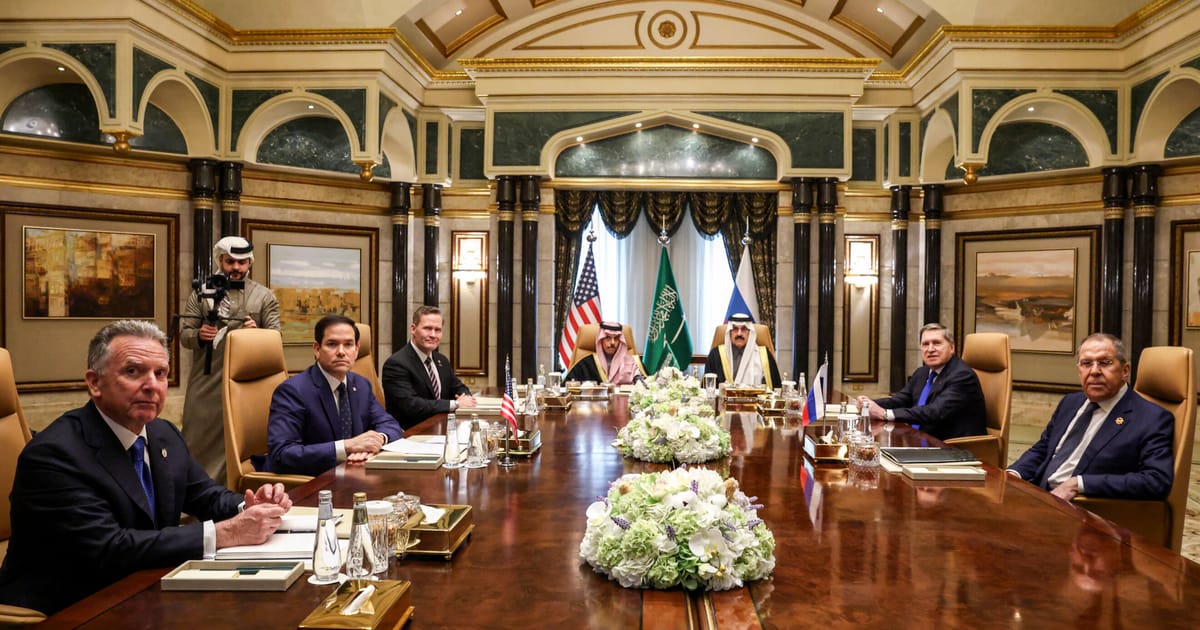
Alongside the creation of settlement teams, officials from Washington and Moscow reached an agreement to implement a consultation framework aimed at addressing “irritants” in their bilateral ties. The primary objective is to take essential measures to normalize the functioning of their respective diplomatic missions and to pave the way for future collaboration on shared geopolitical interests, as well as historical economic and investment prospects.
Following the discussions between the two nations, Kirill Dmitriev, the Russian negotiator and leader of the Russian Direct Investment Fund, informed Reuters that U.S. and Russian representatives held independent talks regarding potential economic cooperation, as noted by a spokesperson for the RDIF.
Shortly after the conclusion of the meetings in Riyadh, an air raid alert was triggered in Kyiv, where local authorities issued warnings about the potential threat of incoming Russian ballistic missiles.
While the dialogue regarding Ukraine was taking place between Russia and the U.S., Ukrainian President Volodymyr Zelenskyy was in Turkey, where he inaugurated the revamped Ukrainian Embassy in Ankara and engaged in discussions with President Erdoğan on Tuesday.
Zelenskyy remarked, “Historically, Russia has issued ultimatum after ultimatum without offering genuine diplomatic solutions to Ukraine. Instead, it chose to invade, leaving us with no choice but to defend ourselves.”
He continued, “Russia demanded that we reduce our military forces, acknowledge occupied regions, and install a pro-Russian administration.” The President added, “I’m starting to notice a similar mindset among certain representatives of Russia and the United States… discussing Ukraine without including Ukraine in the conversation.”
“Given that we stood firm against ultimatums during the most challenging times, what makes people believe that Ukraine would consider accepting them now?” he questioned.
This story has been updated. Veronika Melkozerova contributed to this report from Kyiv.









